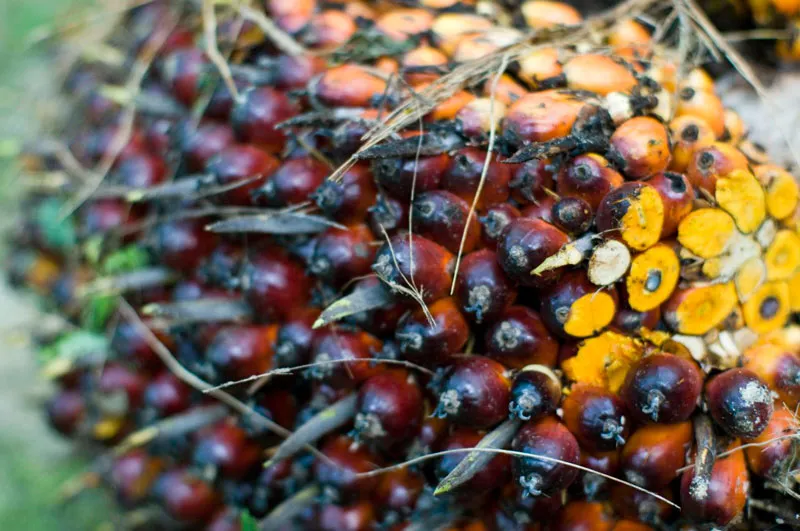
Golden Agri's 6% output growth trailing behind peers and industry: analyst
The firm’s ‘floating rate’ borrowings also pose a threat to its earnings.
Golden Agri Resources’ (GAR) 6% output growth is trailing behind its peers and the industry despite its larger planted nucleus area of 395,764 ha, according to a report by CGS-CIMB.
GAR saw its profits succumb to a loss of $74.51m (US$53.92m) in Q3 on the back of lower plantation earnings with revenue dipping 1% to $2.54b (US$1.84b).
Also read: Golden Agri-Resources hit by $74.51m loss in Q3
The firm posted a 27% YoY drop in its YTD earnings before interest, tax, depreciation and amortisation (EBITDA) due to weaker contributions from all its key business segments with plantation EBITDA falling 20% YoY as average selling prices (ASPs) for crude palm oil dropped 9%, the report noted.
“For 2018 YTD, GAR posted core net profit of $6.9m (US$5m) which is lower compared to First Resources’ core net profit of $128.34m (US$93m),” analyst Ivy Ng said. “In view of the poor performance against peers, we lower enterprise value per hectare (EV/ha) accorded to its estates in our statement of purpose (SOP) to $11,180/ha (US$11,000/ha).”
As a result, CGS-CIMB cut GAR’s target price to $0.23 per share, Ng said.
According to Ng, GAR’s earnings lag could be due to higher operating costs at GAR compared to First Resources.
“The group revealed its average cost of production for Q3 was $367/397 (US$266/288) per tonne which is lower than the previous year corresponding period due to higher production and weaker rupiah against US$,” Ng said.
Meanwhile, a ‘slight’ concern for Ng is the bulk of GAR’s $3.98b (US$2.88b) borrowings being at ‘floating rates’ which could rise with higher US interests.
“Every 1% point rise in current effective borrowing costs of 4% could lower its pretax profit by $40.04m (US$29m), based on our estimates,” Ng said.
CGS-CIMB cut its FY18-20F earnings forecast by 12-38% to reflect lower crude palm oil prices, Ng said, amidst GAR’s optimism that the implementation of higher biodiesel blends in Indonesia will help support its earnings, as well as raise crude palm oil prices.
OCBC Investment Research (OIR) however noted that it expects the demand growth for crude palm oil to remain stable as it will be supported by global food and energy demand, especially the increase in biodiesel consumption in Indonesia.



![SBR 5 Lorem Ipsum News 2 [8 May]](https://cmg-qa.s3.ap-southeast-1.amazonaws.com/s3fs-public/styles/exclusive_featured_article/public/2025-05/a_hand_pointing_to_a_futuristic_technology_5b87c9d0e3_3.png.webp?itok=M3Hf-9XR)
![SBR 4 Lorem Ipsum [8 May Top Stories]](https://cmg-qa.s3.ap-southeast-1.amazonaws.com/s3fs-public/styles/exclusive_featured_article/public/2025-05/a_hand_pointing_to_a_futuristic_technology_5b87c9d0e3_2.png.webp?itok=2m5Wl0MX)


![Exclusive three SBR 12 Lorem Ipsum [8 May]](https://cmg-qa.s3.ap-southeast-1.amazonaws.com/s3fs-public/styles/exclusive_featured_article/public/2025-05/a_hand_pointing_to_a_futuristic_technology_5b87c9d0e3_11.png.webp?itok=8kn_UIfA)
![SBR 3 Lorem Ipsum [ Exclusive 2]](https://cmg-qa.s3.ap-southeast-1.amazonaws.com/s3fs-public/styles/exclusive_featured_article/public/2025-05/a_hand_pointing_to_a_futuristic_technology_5b87c9d0e3_1.png.webp?itok=YCyjLegJ)
![SBR 2 Lorem Ipsum [8 May]](https://cmg-qa.s3.ap-southeast-1.amazonaws.com/s3fs-public/styles/exclusive_featured_article/public/2025-05/a_hand_pointing_to_a_futuristic_technology_5b87c9d0e3_0.png.webp?itok=_cKD-29o)

![Video [Event News]](https://cmg-qa.s3.ap-southeast-1.amazonaws.com/s3fs-public/styles/event_news_featured_article/public/2025-05/screenshot-2025-05-08-at-4.58.53-pm_0.png.webp?itok=Kud35sMs)
![Event News SBR 9 Lorem Ipsum [8 may]](https://cmg-qa.s3.ap-southeast-1.amazonaws.com/s3fs-public/styles/event_news_thumbnail/public/2025-05/a_hand_pointing_to_a_futuristic_technology_5b87c9d0e3_8.png.webp?itok=DTh_dbYp)
![Event News SBR 9 Lorem Ipsum [8 May]](https://cmg-qa.s3.ap-southeast-1.amazonaws.com/s3fs-public/styles/event_news_thumbnail/public/2025-05/a_hand_pointing_to_a_futuristic_technology_5b87c9d0e3_7.png.webp?itok=vzDAzb6V)
![Event News SBR 8 Lorem Ipsum [8 May]](https://cmg-qa.s3.ap-southeast-1.amazonaws.com/s3fs-public/styles/event_news_thumbnail/public/2025-05/a_hand_pointing_to_a_futuristic_technology_5b87c9d0e3_6.png.webp?itok=jvHFc4P6)
![Video [Event News]](https://cmg-qa.s3.ap-southeast-1.amazonaws.com/s3fs-public/styles/video_thumbnail/public/2025-05/screenshot-2025-05-08-at-4.58.53-pm_0.png.webp?itok=yZnI0YBb)
![Video 1 SBR [8 May]](https://cmg-qa.s3.ap-southeast-1.amazonaws.com/s3fs-public/styles/video_thumbnail/public/2025-05/screenshot-2025-05-08-at-4.58.53-pm.png.webp?itok=9AAeRz_k)

 Advertise
Advertise

